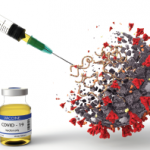- Contradictory: Conspiratorial thinking is often incoherent. Conspiracists may believe in ideas that contradict each other;
- Overriding suspicion: Conspiratorial thinking is characterized by a profound distrust of official accounts;
- Nefarious intent: Conspiracies are often assumed to be driven by malice, beyond simple greed;
- Something must be wrong: Even when they acknowledge contradictory evidence, conspiracists often continue to maintain the official account cannot be true;
- Persecuted victim: Conspiracists often see themselves as both hero and victim. Hero, because they call attention to the conspiracy, and victim, because they are persecuted by those who perpetuate the conspiracy;
- Immune to evidence: Conspiracy theories are self-sealing: Any contradictory evidence is assumed to part of the conspiracy; and
- Re-interpreting randomness: Sometimes a cigar is just a cigar? Not if you’re a conspiracist. All events, no matter how small, can be interpreted as further evidence that a conspiracy is taking place.
Conspiratorial thinking is just one ingredient when you are cooking up a conspiracy theory. Long-lived conspiracy theories share two important elements:
The first element is plausibility. The conspiracy theory must seem like a reasonable explanation, at least at first blush. There is a reason that we have a conspiracy theory about the moon landing, but not a conspiracy theory about Martians selling burgers on the dark side of the moon. The best conspiracy theories have a grain of truth, no matter how small.
The second element is a benefactor. There is a certain irony in discussing the conspiracy underlying conspiracy theories, but in this case, it happens to be true. Conspiracy theories wither without regular recognition. For a conspiracy theory to survive, a benefactor must repeatedly draw attention to the conspiracy, and attract new adherents. The benefactor may benefit from the conspiracy in a variety of ways, including ad buys, merchandising, clicks and notoriety.22
COVID-19 Conspiracists
Vaccine hesitant is an umbrella term that encompasses many people, each of whom has their own reason for not having received the coronavirus vaccine. Some are vaccine procrastinators, who just haven’t gotten around to getting vaccinated. Others are vaccine disinterested and are simply waiting for the right motivation, such as an employer who makes vaccination a job requirement.
A significant proportion of the unvaccinated, however, are vaccine conspiracists, who believe the coronavirus vaccine is dangerous—or at least, unnecessary. Vaccines have always attracted a significant amount of distrust, but the coronavirus vaccine seems to have led to some very specific accusations: The vaccine rewrites your DNA. The vaccine makes you infertile. The vaccine includes a microchip that the government will use to track you. And—my favorite—the vaccine makes you magnetic.23
We have been dealing with moon landing conspiracy theorists for half a century. Has this experience taught us anything about how to approach those who think that the coronavirus vaccine is part of yet another conspiracy?
Buzz Aldrin came up with one approach. On Sept. 9, 2002, Bart Sibrel cornered Aldrin in Beverly Hills to accuse him of having faked the moon landing. In response, Aldrin punched Sibrel in the nose.24
As satisfying as that must have been, let’s assume that violence is not the most productive approach. Some alternative strategies include the following:25



